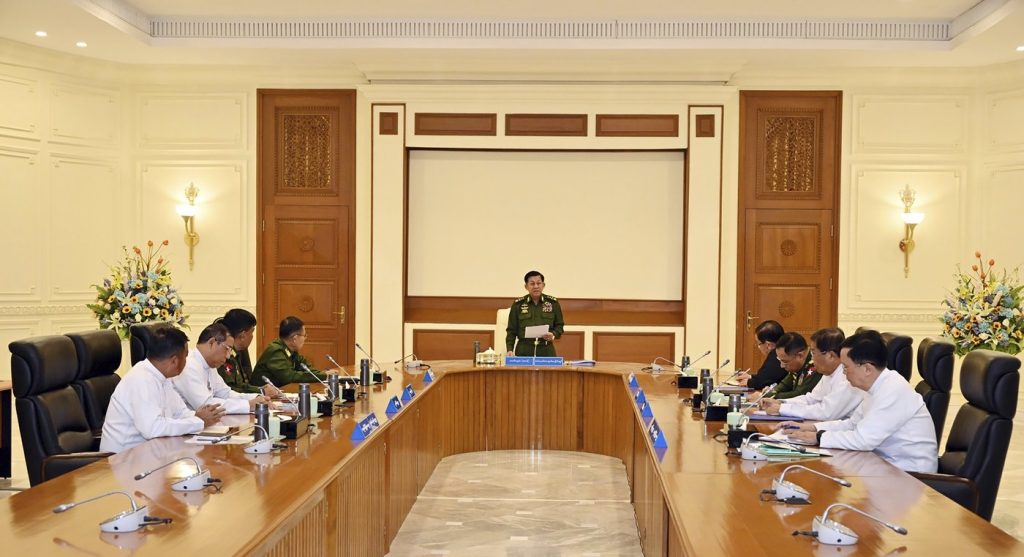BANGKOK (AP) – Myanmar's military government announced on Friday a six-month extension of its mandate to rule as it prepares for elections it claims will take place within this year. However, the military did not specify an exact date for these polls. The military declared a state of emergency on February 1, 2021, following the arrest of the nation's leader, Aung San Suu Kyi, and other top officials in a coup that reversed years of democratic progress after five decades of military rule.
This takeover has triggered an armed resistance movement, with ethnic minority militias and people's defense forces controlling significant portions of the country. The military government is currently grappling with its most significant challenge since assuming power, having largely lost control outside central Myanmar and major urban areas, including the capital city, Naypyidaw.
According to state-run MRTV, the National Defense and Security Council unanimously agreed to extend the state of emergency following arguments from Senior General Ming Aung Hlaing, the military's leader, claiming that additional time is necessary to restore stability before elections can occur. Although the council is nominally a constitutional body, it is effectively dominated by military interests.
As per the army-drafted 2008 Constitution, the military is entitled to govern under a state of emergency for one year, followed by two possible six-month extensions before elections must be held. The extension announced on Friday marks the seventh such prolongation. Tom Andrews, a special rapporteur with the U.N. Human Rights Office, criticized the military's four-year rule, stating it has plunged Myanmar into a state of crisis with more than 3.5 million people displaced by ongoing conflicts.
Moe Zaw Oo, a member of the opposition's shadow National Unity Government (NUG), recently emphasized that opposition groups are strategizing to prevent the military from conducting these elections through nonviolent means. The NUG, which claims to be the legitimate government of Myanmar, functions as an umbrella for various opposition factions. Their unified stance against the military's planned elections reflects widespread skepticism regarding the legitimacy of the electoral process.
Andrews highlighted severe humanitarian concerns, stating, "Junta forces have slaughtered thousands of civilians, bombed and burned villages, and displaced millions of people," underscoring the dire situation as famine and starvation loom over a significant part of the population. Furthermore, more than 20,000 political prisoners are reportedly still imprisoned.
The current state of emergency permits the military to assume all governmental functions, giving Min Aung Hlaing comprehensive legislative, judicial, and executive powers. The military initially indicated that elections would occur in August 2023 but has since postponed this date and mentioned that they may not occur until 2025, complicating any potential timeline for restoring democracy in Myanmar.
Additionally, under the Constitution, the military is mandated to transfer government authority to the presidency a minimum of six months prior to any elections. Critics assert that these upcoming elections are unlikely to be free or fair due to the lack of a free press and the previous arrests of most leaders from Suu Kyi’s National League for Democracy party. The government's plans are viewed as an attempt to legitimize military rule and ensure that the generals maintain control over the political landscape in Myanmar.










